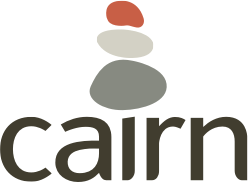By Antionette Meeks of Cairn Guidance, a Dove Self-Esteem Project Partner
As a child, once school ended, it seemed like June was a long month and there were endless things to do. The freedom to do them at will felt good. Then July sped by and August felt like summer was over in the blink of an eye. Slowly, the excitement of returning to school built inside. Welcome to the 2023-24 school year!
For some students the 2023-24 school year began the first week in August, for others it may be as late as the second week in September. No matter when the school year begins, there is the feeling of the loss of the carefreeness of summer for many and the excitement of starting a new grade and seeing friends and special teachers. For some students, it’s the start of a school year in a new state or city or a transfer to a new school locally. They too may be excited, but also challenged with learning the new school and making friends. Educators can facilitate students’ feelings of belonging regardless of whether they are new or returning students.
How educators greet students can set the tone for the year. We set expectations for all students through our kindness, positive words, and even just through smiles or how we engage with them. It’s important to be encouraging to our students and not accept negative talk about how they look, their skills, or knowledge. Many schools and classrooms post rules that students are expected to follow. However, it likely is the lead that educators take in modeling these rules which may include respecting one another. Respecting one another can be translated into accepting each other and treating each other well.
The excitement of the first day and readiness for the experience a new school year brings can quickly change when an unkind word or “look” from a peer is shared. There are also the dreaded social media exchanges that can move through a school faster than a high-speed train on tracks. In the current world where civil discourse seems to be taking a back seat to compassion, empathy, respect, and acceptance, it is important for each student to feel respected and accepted. Students tend to do better academically when they have positive self-esteem and body confidence.
If you have been reading these blogs long enough, you know where I’m going. The Dove Self-Esteem Project (DSEP) supports educators as they teach students about the impacts of social and professional media, negative self-talk, and influences, to name a few. It cannot be said enough that DSEP supports schools and educators as they create a caring and supportive environment for their students. As stated in prior blogs, and it is worth repeating now, a priority is to graduate contributing and successful human beings. Students who do not feel good about themselves may perform below academic expectations, not participate in class activities or share opinions, or participate on sports teams or clubs. They may not explore some of the richest activities that allow them to express themselves or their skills, because of a lack of self-esteem or body confidence.
Working with the whole child, places educators on the road to reaching students academically. Educators are important people to students. They represent someone students can talk to and share exciting news. They represent one of students’ cheerleaders helping them have confidence in themselves and understand “they can do it”. Educators, as do many parents or other trusted adults in the lives of our students, encourage them, and help them know they can be whatever they wish, if they believe in themselves and put the time and energy into accomplishing their goals. All it takes is one person to believe and provide some of the tools. DSEP provides educators with tools that help students improve their self-esteem and body confidence. Its curricula or programs include the six and single-lesson Confident Me! curricula; Celebrándome, the Spanish version of Confident Me!; Proud to Be Me for LGBTQ2S+ students and their allies, and My Hair My Crown for students with curls, coils, wavy or protective hair styles and their allies. While these curricula or programs may not be taught beginning on the first day of school, they do support and supplement teachings and other things educators and schools provide students.
Educators make the world go round. Without each and every one of you, we would not have students who become literate, contributing, productive, and well-rounded adults. Thank you for showing up every day, prepared, and ready to challenge students to learn, do their best, treat each other with respect, and to accept each other. Have one of the best school years ever!
To receive all of the Dove Self-Esteem Project curricula mentioned in this blog, complete the reach form HERE.

Leave a Reply